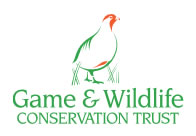The decline of wildlife in Wales has been well documented, but there is renewed hope that working together with conservation organisations and the Welsh Government, the Welsh uplands can be restored to their former glory.
Not long ago the wildlife of Wales was rich and diverse with an active and successful sporting scene, but since the 1990s bird populations have crashed alarmingly. This was depicted by the State of Nature report, which reported a story of decline throughout the UK. This was starkly illustrated in the Welsh uplands where species such as curlew, black grouse, lapwing, golden plover and red grouse, which are still common on the grouse moors of northern England, were identified as in steep and possibly terminal decline.
We have been aware of this decline, and after producing remarkable recoveries in some of these species at the Welsh Grouse Project at Pale Moor by the simple application of good game management, we had to watch from the sidelines as these precious gains disappeared when game management ceased.
However, with the amalgamation of the Forestry Commission, Environment Agency and Countryside Council for Wales to form Natural Resources Wales, coupled with enthusiasm from the Welsh Government to investigate innovative ways to breathe new life into the uplands, we believe this could be an excellent opportunity to demonstrate how properly conducted game management can reinvigorate not just upland wildlife, but the local economy.
Our existing science-based management options are applicable to many Welsh problems and our record in resolving site- and species-specific issues makes us ideally suited to help everyone with the best interests of the Welsh uplands at heart. This includes involving the many existing landowners and land managers who have suffered years of frustration watching valuable assets degrade for no significant biodiversity gain.
We have appointed Catherine Hughes as our first policy and development officer who will focus solely on issues in Wales, and together with the resurgence of excellent Welsh regional committees and the absolute commitment of our scientists and executive, we will do all we can to show how the principles of game management can help wildlife recovery and ensure that our key bird species are flourishing once more.
Support in Wales
The GWCT committees in Wales are playing a huge part in our achievements so far. They have held various events to highlight the Trust’s work and to raise funds, from evening talks to shoot walks.
There is also a group of very supportive people in south-west Wales who have held a talk on our woodcock work and hopefully will form a larger committee very shortly. Help and support in Wales are much appreciated so please get in touch if you would like to help in any way. Please contact mkendry@gwct.org.uk.
 GWCT News & Advisory
GWCT News & Advisory

No comments:
Post a Comment